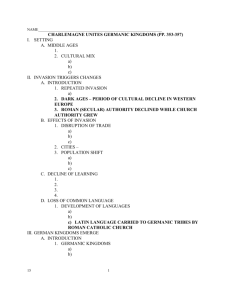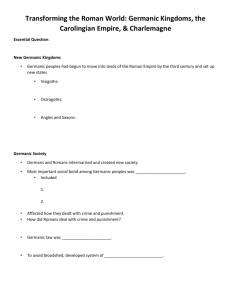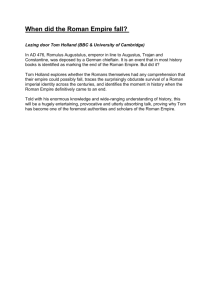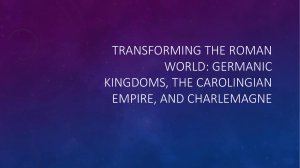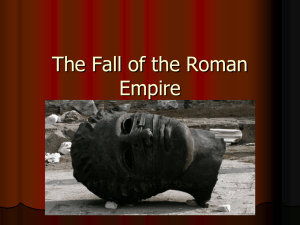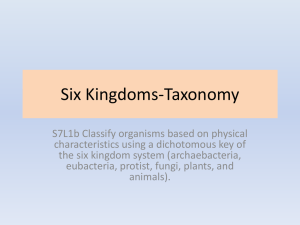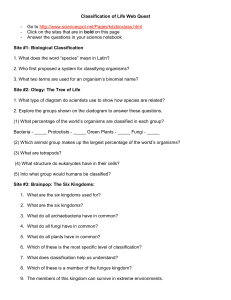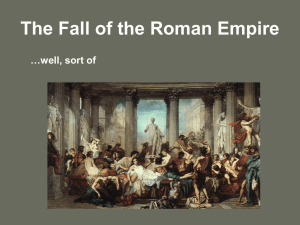POINTS TO REMEMBER
advertisement
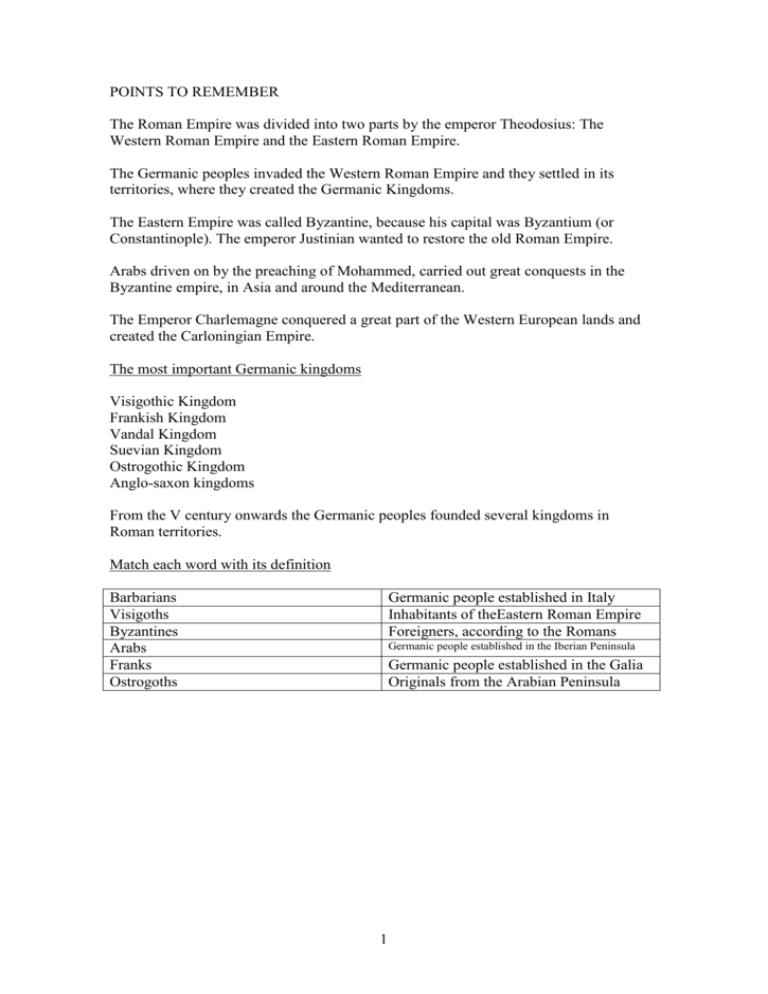
POINTS TO REMEMBER The Roman Empire was divided into two parts by the emperor Theodosius: The Western Roman Empire and the Eastern Roman Empire. The Germanic peoples invaded the Western Roman Empire and they settled in its territories, where they created the Germanic Kingdoms. The Eastern Empire was called Byzantine, because his capital was Byzantium (or Constantinople). The emperor Justinian wanted to restore the old Roman Empire. Arabs driven on by the preaching of Mohammed, carried out great conquests in the Byzantine empire, in Asia and around the Mediterranean. The Emperor Charlemagne conquered a great part of the Western European lands and created the Carloningian Empire. The most important Germanic kingdoms Visigothic Kingdom Frankish Kingdom Vandal Kingdom Suevian Kingdom Ostrogothic Kingdom Anglo-saxon kingdoms From the V century onwards the Germanic peoples founded several kingdoms in Roman territories. Match each word with its definition Barbarians Visigoths Byzantines Arabs Franks Ostrogoths Germanic people established in Italy Inhabitants of theEastern Roman Empire Foreigners, according to the Romans Germanic people established in the Iberian Peninsula Germanic people established in the Galia Originals from the Arabian Peninsula 1 POINTS TO REMEMBER Muslims created a State in the Iberian peninsula, called Al-Andalus, which lasted 800 years. Its first stage was called the Emirate. It achieved its greatest splendour with the Cordoba Caliphate (X century). Abd alRahman III, the Caliph, and Al-Mansur, the Prime Minister, were the most important figures of this period. In the XI century the Cordoba Caliphate disintegrated and “taifa” kingdoms were formed, among them those of Zaragoza and Albarracin. The Muslims remained in the peninsula for 800 years, having an enormous influence on the Hispanic art and culture. A few Hispano-Arabic monuments are: the Cordoba Mosque, the Alhambra in Granada and the Giralda in Seville. The mosque: the parts Minaret Arched courtyard Fountain The mihrad The Qibla Prayer room POINTS TO REMEMBER From the VIII-IX centuries independent kingdoms were formed from Al-Andalus. First was the kingdom of Asturias, which when it extended into the non-inhabited land in the Duero valley become the kingdom of Leon. In the Pyrenean region, the Franks pushed the Muslims back, creating the Hispanic Mark which later gave rise to the kindom of Navarre, the County of Aragon and the Catalan Counties. The kings of the Muslims “taifas” were forced to pay taxes to keep peace. From the XI century, the northern kingdoms achieved a great military advance. The Almoravid offensive detained the Reconquest towards the end of the XI century, and the taifa kingdoms fell under their rule. The repopulation of the barren lands contributed to free the majority of peasants from feudal serfdom in the north of the peninsula. Most of the population lived by farming and stockbreeding following extremely rudimentary techniques. St James´s Way revitalized the economy of the northern kingdoms and it was along this route that culture and the artistic styles wich dominated feudal Europe arrived. 2 CURIOSITIES Chess first appeared in India in the V century, it spread to Persia and the Muslims introduced it to the Iberian Peninsula in the IX century. EXERCISES The Koran: This book, there is no doubt it, is a guide to those who fear God: those who believe in the unseen; those who keep up prayer; those who give alms from their goods; and those who believe in that which has been revealed to you and that which was revealed before you; those who are sure of the life hereafter. a-Read the text carefully. b-Look up the words you do not understand in the dictionary. Islamic doctrine: The Koran is the sacred book of the Muslims, who have five obligations. -The profession of faith: there is only one God, Allah, and Mohammad is his prophet. -Prayer five times a day. On Fridays, there is a collective prayer in the mosque, led by the imam. -Pilgrimage to Mecca at least once in a lifetime. -Fasting during the month of Ramadan. -Alms, an economic contribution to charitable works which has sometimes ended up as a kind of tribute. Muslims are also obliged to strive for spiritual perfection. A small number also believes they should spread their religion by means of the holy war. The Koran also includes obligations for daily life, for example: eating pork, drinking alcohol, practising usury and playing games of chance are strictly prohibited. a-Read the text carefully b-look up the words you do not understand in the dictionary. 3

